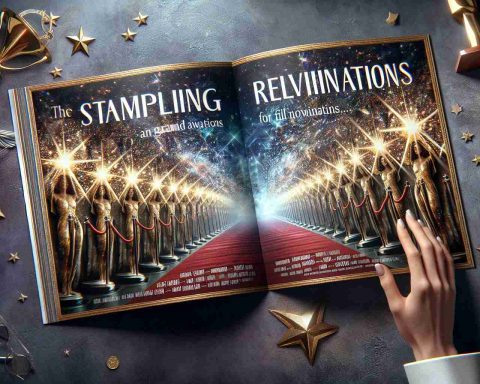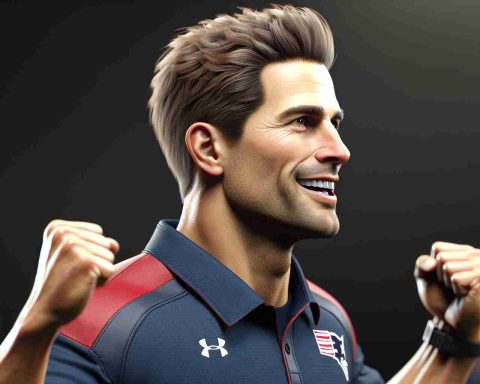Putin’s Surprising Claim on Ukraine’s Crisis.
In a recent broadcast, Russian President Vladimir Putin shared the intriguing viewpoint that the Ukraine invasion might have never taken place if Donald Trump had been in power during its initiation. Citing Trump’s recent commentary, Putin suggested that had Trump not lost in 2020 and held the presidency, the current geopolitical crisis could have been averted.
Trump further fueled the conversation by proclaiming on his social media platform that the ongoing conflict would not have started under his administration, hinting at his capability to resolve the situation expediently. The repetition of the “stolen election” narrative by both figures has led many to speculate about a potential future meeting between them.
In response, Ukrainian officials, including Andriy Yermak, strongly discouraged any negotiations that exclude Ukraine from the discussion. Yermak highlighted Putin’s efforts to engage the United States while sidelining Europe and Ukraine, stating categorically that such maneuvers would not be tolerated.
Amidst these tense exchanges, Ukrainian President Volodymyr Zelenskyy expressed his concerns regarding the influence of China over Russia and questioned whether the Western allies would maintain their significant role in future peace discussions.
As diplomatic efforts continue, the international community watches closely, aware that the course of this conflict remains uncertain.
Geopolitical Dynamics and Their Broader Implications
The ongoing situation in Ukraine, particularly in light of Putin’s comments linking the crisis to former President Trump’s potential leadership, underscores the complex interplay of global power dynamics. This narrative hints at a transformative era in international relations, where personal relationships among leaders significantly influence global diplomacy. The rhetoric surrounding Trump’s hypothetical presidency amplifies concerns about the fractured alliances among Western nations and poses questions about the robustness of collective security mechanisms like NATO.
The implications extend beyond immediate geopolitical tensions; they reverberate through societal structures in both Europe and the U.S. The polarization of political discourse can lead to a weakened response to aggression, prompting adversarial states to reassess their military strategies. Moreover, the ripple effects on the global economy are significant. As nations grapple with energy shortages and economic instability directly tied to the conflict, the specter of inflation, trade disruptions, and supply chain instabilities becomes increasingly pronounced.
Additionally, the environmental ramifications of prolonged warfare are profound. Armed conflict typically exacerbates ecological damage, leading to long-term consequences for biodiversity and human health. As we observe these developments, future trends point towards a potential shift towards multipolarity, where nations are forced to navigate a landscape marked by not only military might but also economic resilience and environmental sustainability. The long-term significance of these shifts could redefine international cooperation for decades to come.
Putin and Trump: A Tale of Missed Opportunities in Ukraine
The Current Geopolitical Landscape
The ongoing conflict between Russia and Ukraine has drawn significant worldwide attention, influencing political narratives and international relations. Recently, Russian President Vladimir Putin made a provocative statement suggesting that the invasion of Ukraine might have been avoided entirely had Donald Trump won the 2020 presidential election. This claim raises questions about the interplay between leadership, domestic politics, and global conflicts.
Putin’s Claim and Its Implications
During a recent broadcast, Putin referred to Trump’s assertion that he could have prevented the conflict, implying that Trump’s leadership style and foreign policy approach would have fostered better relations between the United States and Russia. This speculation resonates deeply with supporters of Trump, who often share the narrative of a “stolen election” and speculate on potential future engagements with Trump.
Trump’s Response
Trump took to his social media platforms to reinforce Putin’s claims, affirming that under his administration, the invasion would not have occurred. Trump’s remarks seem designed to solidify his position among his base, as he contrasts his foreign policy strategies with those of the current administration.
Ukrainian Response and International Concerns
In the wake of these statements, Ukrainian officials, including Chief of Staff Andriy Yermak, have made it clear that any negotiations excluding Ukrainian interests are unacceptable. Yermak emphasized that the discussions should involve Ukraine at the forefront, warning against excluding European allies in favor of a U.S.-Russia dialogue that sidelines Ukraine.
Ukrainian President Volodymyr Zelenskyy has voiced additional concerns regarding the rising influence of China on Russia and has expressed uncertainty about whether Western nations will maintain their support in future negotiations for peace. The dynamic between these major players shapes not only the immediate conflict but also future geopolitical alignments.
Future Outlook and Trends
This situation underscores an important trend in international relations where the personalities and leadership styles of individual national leaders could significantly impact global events. Analysts are observing how domestic political undercurrents in the U.S. might affect its foreign policy stance, particularly in relation to Russia and Ukraine.
Use Cases in International Relations
Understanding the implications of leadership changes and political narratives plays a crucial role in diplomacy and international negotiations. Stakeholders must engage in comprehensive analyses to anticipate how these factors could influence peace talks and conflict resolution efforts.
Conclusion
As the international community remains vigilant regarding the conflict’s trajectory, the interconnectedness of global politics continues to evolve. The narratives constructed by leaders like Putin and Trump will likely resonate across borders, as nations grapple with their diplomatic relations and the quest for stability in an increasingly complex world.
For more insights on global politics and international relations, visit Reuters.









